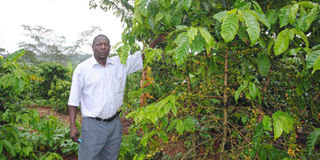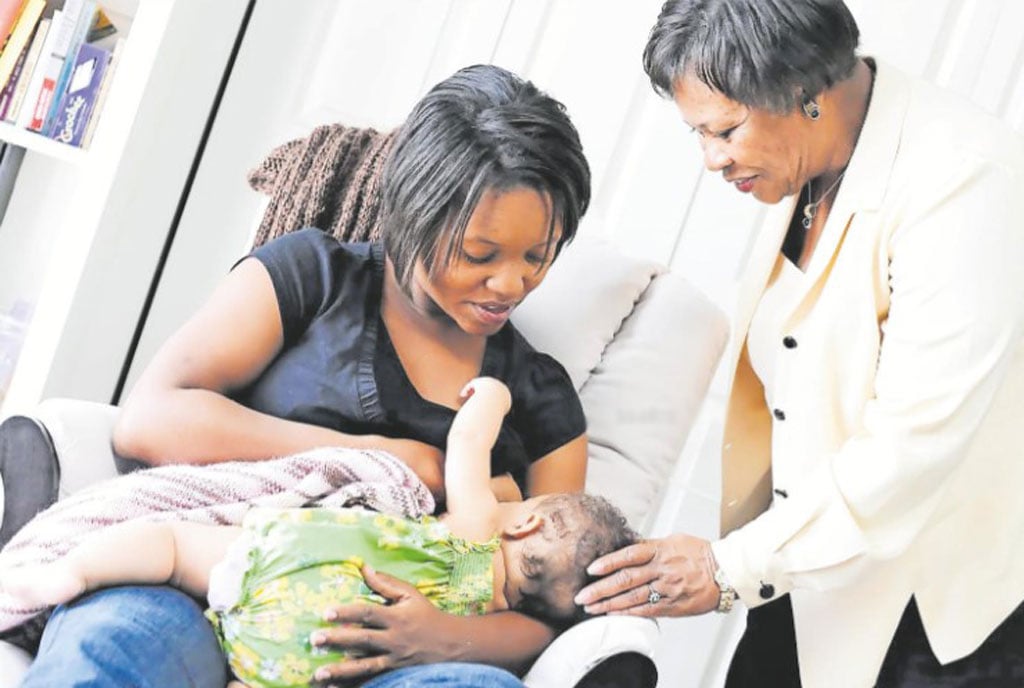Prime
Mini Farming: Masaka farmer earns Shs14m a season from coffee

Zawula in his coffee plantation. Photo by Martin Ssebuyira.
What you need to know:
Like many other farmers, he grew a variety of crops for subsistence and the surplus for sale. But change of outlook, he has been able to increase his earnings from farming.
When you visit Kitengesa village in Buwunga Sub-County, Masaka District, the well-tended coffee plantations will catch your attention and probably prompt you to ask how the people in the area do it.
Ben Lutaaya Zawula, 50, a resident, reveals the secret behind this relatively fast-developing rural village. “People shifted from looking at farming as a source of food in homesteads to embracing farming as a business,” he remarks.
Modern techniques
He was a farmer for several years growing matooke, maize, beans and cassava but later decided to venture into coffee.
“I started in 1996 but not on large scale until 2009 when I started planting coffee massively and that has since changed my life,” he explains.
Zawula started a family company he called Zawula Family Project, which educates people on modern techniques of coffee farming and multiplying the seedlings for sale.
Because of his business, Zawula is considered a model farmer and has helped others in the village to become commercial coffee farmers and employ youths in the area.
There are 18.7 acres under coffee, from which he earns between Shs10m and Shs 14m each season. There is also a nursery bed for seedlings.
“I normally sell 50,000 to 100,000 seedling at Shs300 each, which comes to between Shs1.5m and Shs3m,” he adds.
Diversify
Presently, Zawula has 8,900 coffee trees and 50,000 seedlings that he hopes to harvest from and sell between December and February.
After harvesting, he usually sells processed coffee beans at between Shs3,800 and Shs4,500 per kilogramme. And he can harvest as much as three tonnes.
The proceeds from the business have enabled him to expand his farm and pay school fees for his eight children. Two of them have got their degrees, two are studying at university while others are in secondary school.
In the forthcoming season, he hopes to diversify and get into the real estate business.
Quality product
Zawula however notes that going into coffee growing has not been an easy journey because the crops are sometimes affected by unpredictable weather conditions like the recent prolonged drought experienced in the Masaka area and different parts of the country.
The other challenges are the pests and diseases, expensive farm inputs and the lack of a grading machine. In the latter case, it is noteworthy that graded coffee gets higher prices than ungraded coffee.
“Farmers in this part of the district still sell their coffee at a very low price because it’s not easy for an ordinary farmer to do hull and grade coffee to get better money,” he points out.
So, hulling and grading coffee would enable farmers to have a quality product because it is easily reflected in the beans they sell.
To deal with the dry seasons, with assistance from Naads, he managed to procure a pump with the capacity to deliver 22,000 litres of water within one hour using two litres of fuel. That has helped irrigate the plantattions throughout times when there is little or no rain.
Get skills
He now wants further assistance from government to help the farmers in the area establish a water reservoir and get them an expert to equip them with skills in modern irrigation.
He says the pump puts the cost of water at Shs7 per jerrycan, which may be affordable but there is need for a reservoir, from where it will be possible to pump water to each garden.
Zawula has also approached Balton Uganda Ltd, which deals in such equipment, and was given a quotation of $5,919 (Shs14.9m) for an irrigation system that can cover three hectares. But he and other farmers in Kitengesa are not yet able to raise the amount.
Cost-effective
However, when State Minister for Animal Industry, Bright Rwamirama, and ministry officials visited the area, he promised to assistance to the farmers.
In addition to being provided with coffee seedlings, the farmers would be taught drip irrigation. That it is a cost-effective way to water the crops and to cope with long dry periods.




